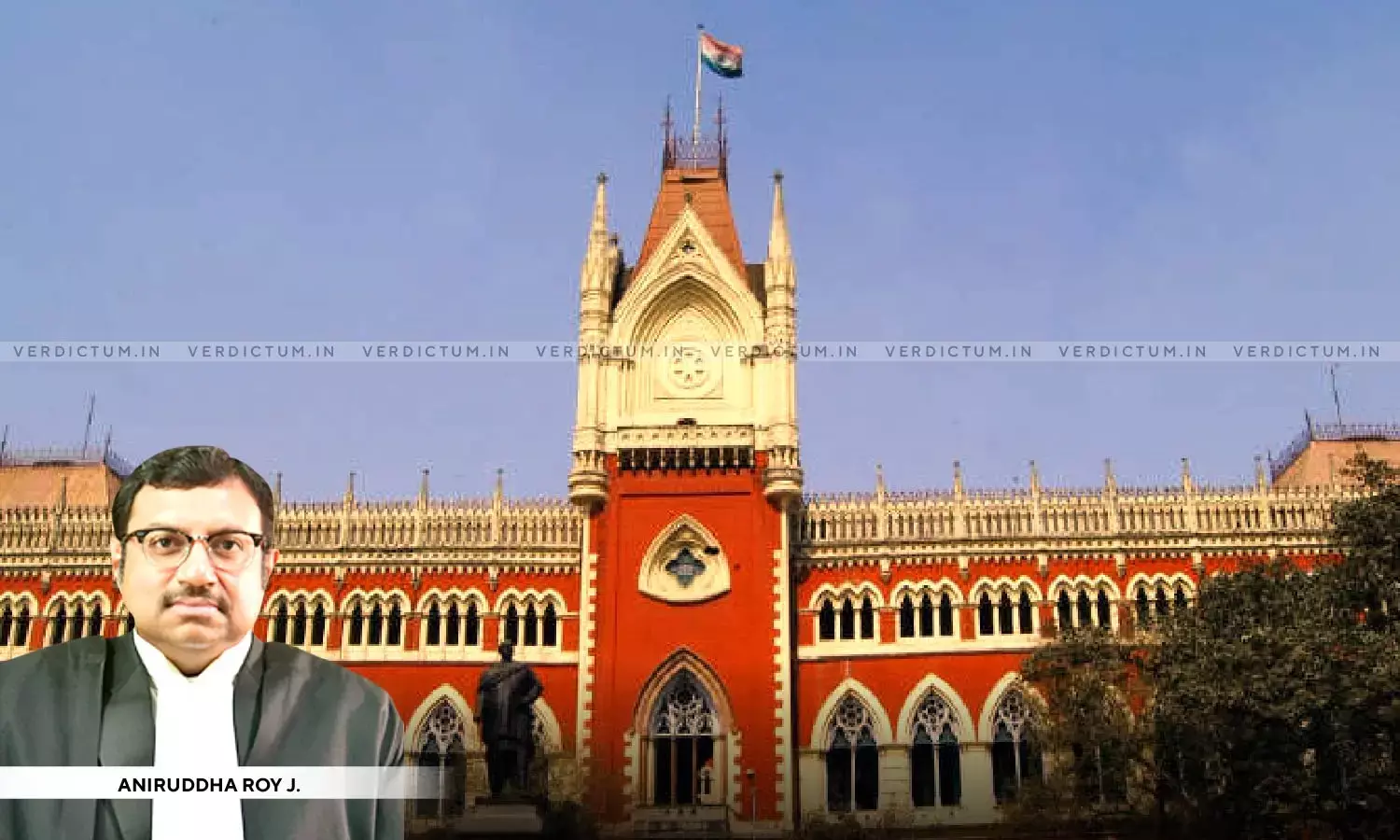Calcutta HC Denies 12-Year-Old Rape Victim To Terminate 25-Weeks-Old Twin Fetuses, Holds Life Of The Girl Is Paramount

Justice Aniruddha Roy, Calcutta High Court
A Calcutta High Court Bench of Justice Aniruddha Roy has denied a 12-year-old rape victim the permission to terminate 25 weeks old twin-fetuses, by relying on the Medical Report issued by the Medical Board. The report stated that the termination of the pregnancy carried grave & life-threatening consequences.
Counsel Sandip Mandal, Counsel Abhilash Mittal, and Counsel Somath Saha appeared for the petitioner, while Counsel Subir Kumar Saha and Counsel Badeshruti Bose appeared for the State.
In this case, the writ petition was filed by the mother of a minor girl, claiming that the girl had been a victim of rape and sexual assault. The report of the Zonal Medical Board reflected that the victim was carrying a twin pregnancy, with the information that the termination of the pregnancy carried the risk of massive haemorrhage, infection, sepsis, surgery & anaesthetic risks, and even maternal death. Further, the babies had achieved the period of viability and did not have any congenital malformation or any pregnancy-related complication, whereby, the termination of the pregnancy could not be done under the Medical Termination of Pregnancy Act, 1971.
Therefore, the termination could only be carried out on the basis of the High Court's order.
The High Court perused the MTP Act, 1971, and observed that "under its diverse provisions and the judicial interpretations thereunder in the catena of judicial pronouncements made by the Hon'be Supreme Court in various matters from time to time had recognized the mental health of the mother. The mother should not and cannot travel through a mental trauma or cannot pass through a situation which is against the dignity of life of a mother, just because the mother after being ravished or otherwise had undergone an unwilling pregnancy."
In that context, the Court analysed whether the continuance of such unwilling pregnancy would involve a risk of causing grave injury to the mental health of the minor girl. It was also analysed whether the constitutional safeguard for the protection of life can be extended to her, if so, to what extent.
Subsequently, it was observed that "The minor girl is entitled to protection of her life in terms of Article 12 of the Constitution of India. Her personal life and liberty which, inter alia, include to live with dignity and without any trauma shall not be deprived. This constitutional protection of life and liberty, including to lead a life without any phobia, fear, trauma and with dignity had been statutorily recognized and are embedded within the said MTP Act."
However, the Court observed that in light of the report issued by the Medical Board, the life of the girl was paramount and in that context, took the considered view that "one crucial factor is there, of which this Court cannot be unmindful, that the termination of pregnancy at this stage of gestation may carry a risk even to the extent of maternal death. Here this Court got stuck as the life of the minor girl is paramount at this stage. If ultimately, the minor girl has to sacrifice her life in the event of termination of her unwilling pregnancy at this advanced stage, then the question automatically comes to the mind of this Court that whose personal life, liberty and dignity shall be protected as guaranteed under Article 21 of the Constitution. For those reasons and discussions, this Court cannot proceed to grant any relief for medical termination of the pregnancy of the said minor girl."
Subsequently, it was ordered that "in the event the said minor girl and her family are incapable to nurture and maintain the twin children and if no claim for adoption or maintenance of the said twin children are received or lodged, then the minor girl and her family may approach and apply before the jurisdictional District Magistrate and/or the appropriate authority under the Juvenile Justice (Care and Protection of Children) Act of 2015 for adoption and foster care of the twin children."
Cause Title: Y v. State of West Bengal & Ors.
Click here to read/download the Judgment

